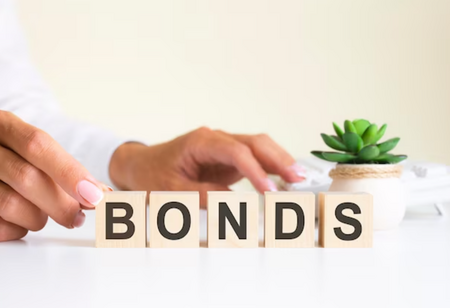Vedanta Resources is Facing a Reckoning with investors over $3.2 Billion in Bonds
By Consultants Review Team
 This week, Vedanta Resources Ltd. faces a reckoning as the miner owned by Indian billionaire Anil Agarwal seeks approval for a proposal that could help it buy more time to pay its debts. Bondholders have until January 2 to agree to a plan to postpone the due dates on $3.2 billion in bond repayments, a move that prompted S&P Global Ratings to downgrade the company's rating to junk in December.
This week, Vedanta Resources Ltd. faces a reckoning as the miner owned by Indian billionaire Anil Agarwal seeks approval for a proposal that could help it buy more time to pay its debts. Bondholders have until January 2 to agree to a plan to postpone the due dates on $3.2 billion in bond repayments, a move that prompted S&P Global Ratings to downgrade the company's rating to junk in December.
To proceed with the scheme, Vedanta needs approval from at least two-thirds of bondholders in each of the three securities. On January 4, a holder meeting will be conducted.
The attempt to alter the conditions of its dollar notes is Agarwal's group's latest attempt to shore up its balance sheet, following the sale of a stake in its Mumbai-listed subsidiary and the acquisition of a $1.25 billion private loan. However, the fact that Vedanta borrowed money at 18% to refinance debt raises questions about the company's finances.
What is Vedanta's most recent proposal to reduce its debt load?
The miner is issuing $779 million by early February for notes due this year and in 2025, with intentions to extend the maturity date on the remaining principal by up to four years.
A group of ad hoc holders of the company's guaranteed notes claim that the firm ignored their views and that the proposal does not represent the best terms for the notes. Vedanta responded by noting that it has consulted with various noteholders before coming up with the strategy. The miner also extended the approval deadline for all three dollar bonds by a few days in response to input from bondholders who were experiencing operational difficulties during the year-end holidays.
What are bondholders supposed to do?
CreditSights advises that bondholders approve the revisions since the amended terms are more appealing.
According to the ratings agency, this is because Vedanta has not offered enough compensation for the extension of maturities. According to S&P, the company is also prioritising cash flows and profits from asset sales to pay commitments under the $1.25 billion loan facility over other creditors. If Vedanta does not receive the necessary backing, the spotlight will move to the company's capacity to honour its $1 billion bond due on January 21.
What is the performance of Vedanta's dollar bonds?
The dollar notes due this month were the most supportive of the firm's liability management exercise, while the remaining three trade below the 80 cents on the dollar mark, which is sometimes regarded as an indicator of trouble.
According to Bloomberg data, the August 2024 rate jumped 3.5 cents on the dollar in December to 66.4 cents. This is the largest monthly increase since September. March 2025 notes gained 3.1 cents to 74.4 cents.
How did the company grow to be so influential?
Agarwal, who grew up in the Indian state of Bihar, took over his father's business fabricating aluminium conductors in the 1970s and then expanded into scrap metal dealing.
He established Vedanta Ltd. by a series of bold acquisitions: in 2001, Agarwal purchased a majority position in the then-government-owned Bharat Aluminium Co., and in 2002, he bought another state-run firm, Hindustan Zinc. In 2007, he successfully bid for iron ore miner Sesa Goa Ltd., as well as Cairn India. Vedanta Resources also has activities in Africa for copper and zinc.
The company was the first in India to list in London in 2003, until Agarwal bought out minority investors 15 years later as part of efforts to restructure the group's structure. Volcan Investments Ltd. has been renamed Vedanta Inc. by Agarwal. This buying binge is what led the conglomerate's debt to skyrocket.




